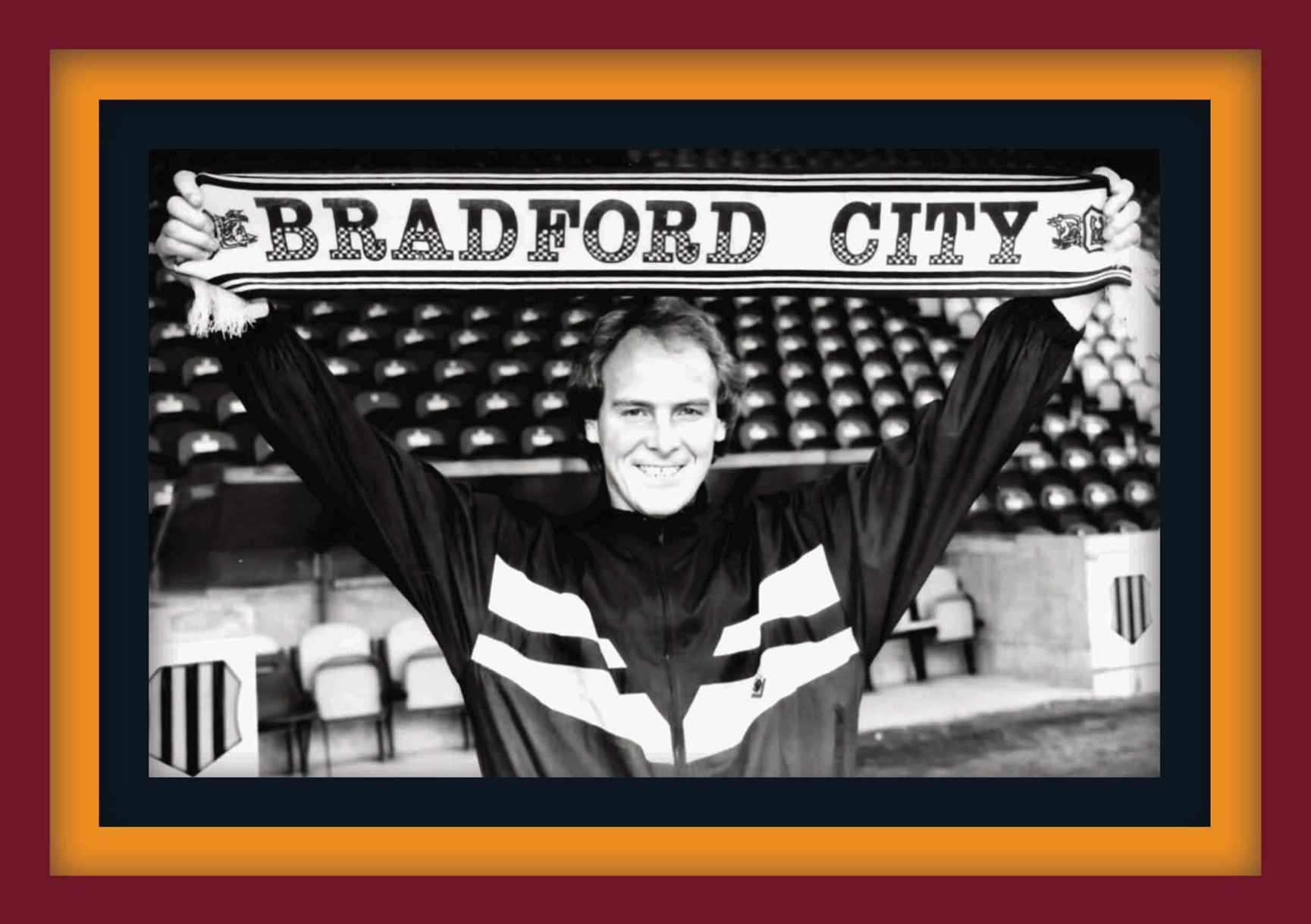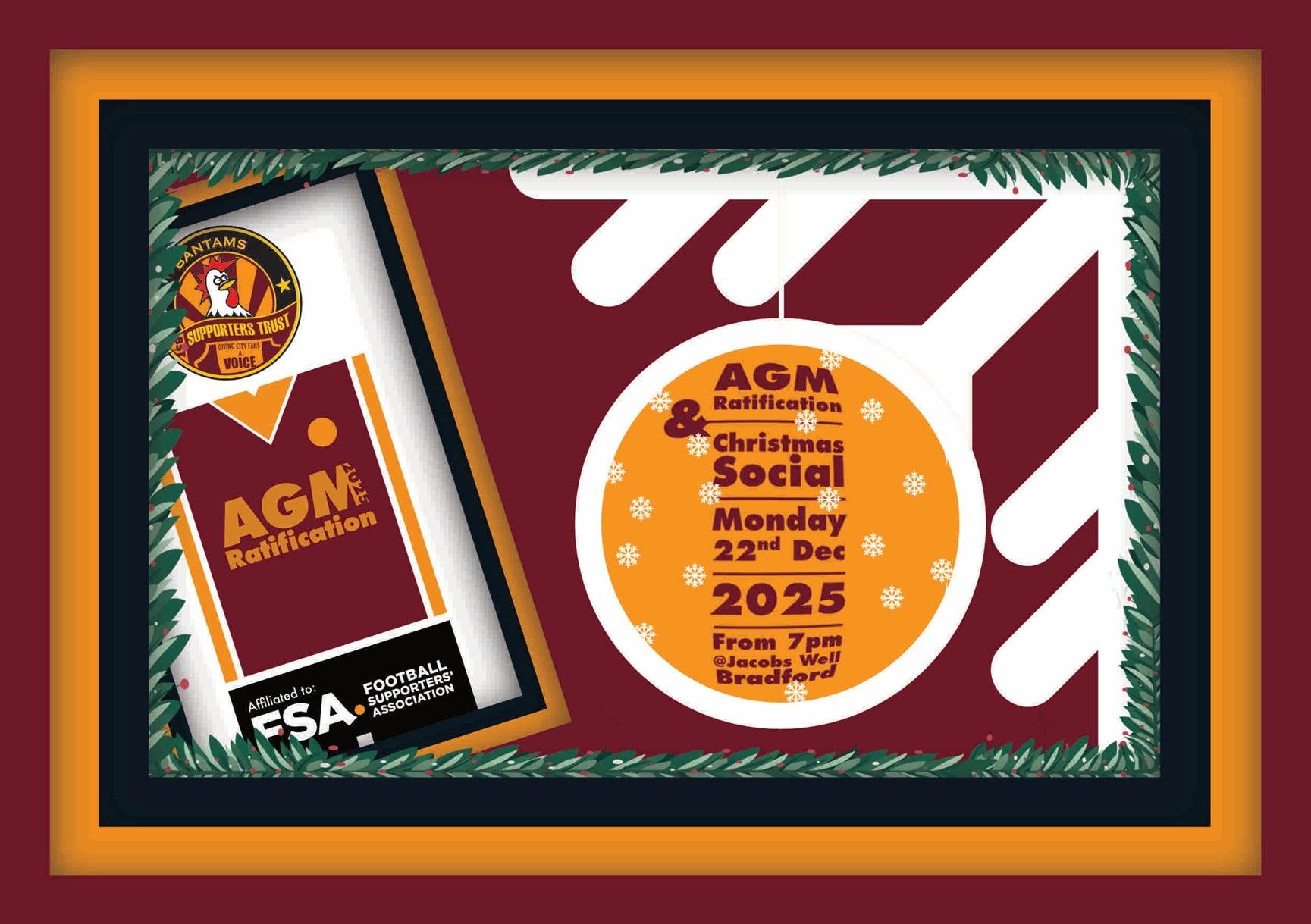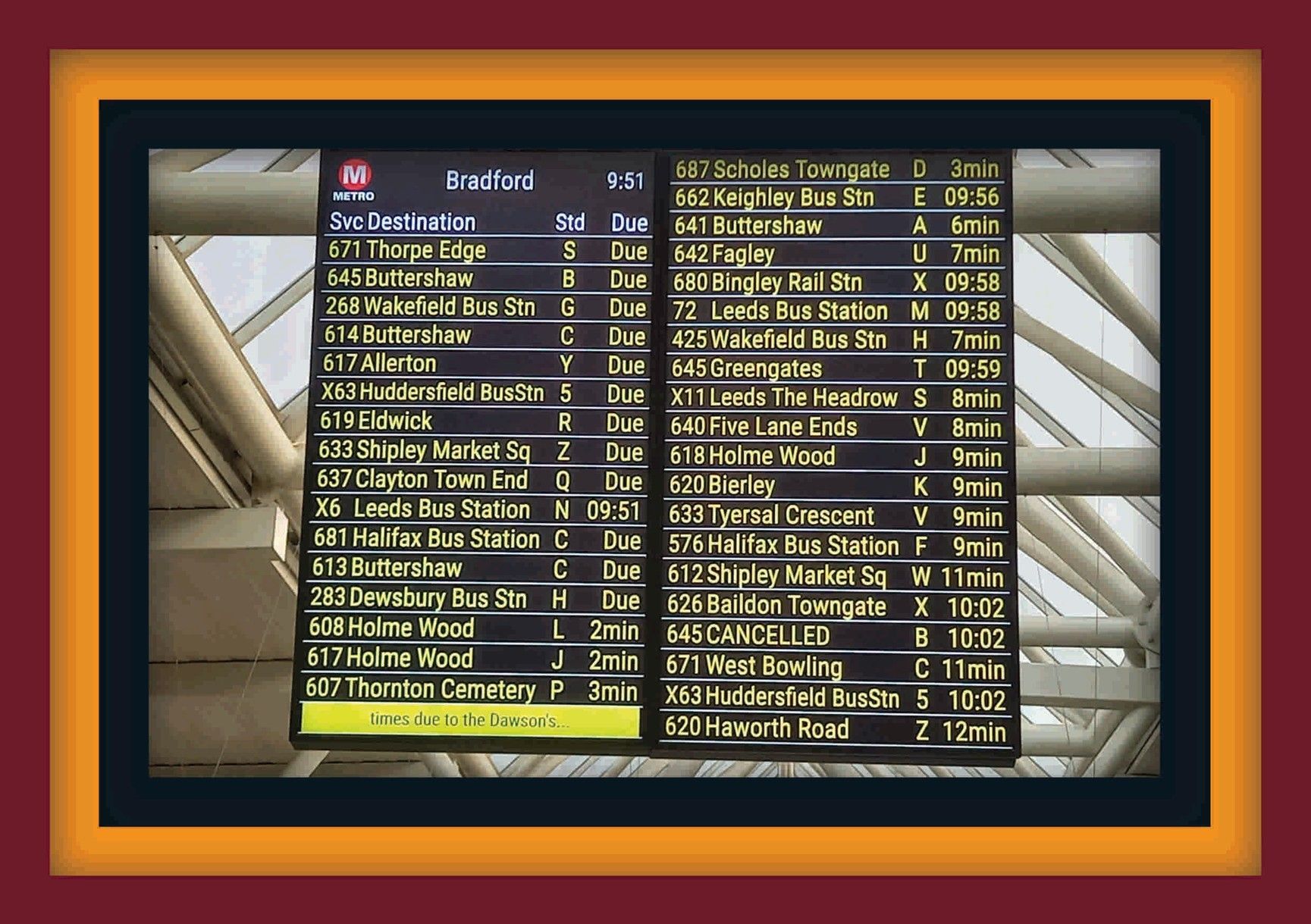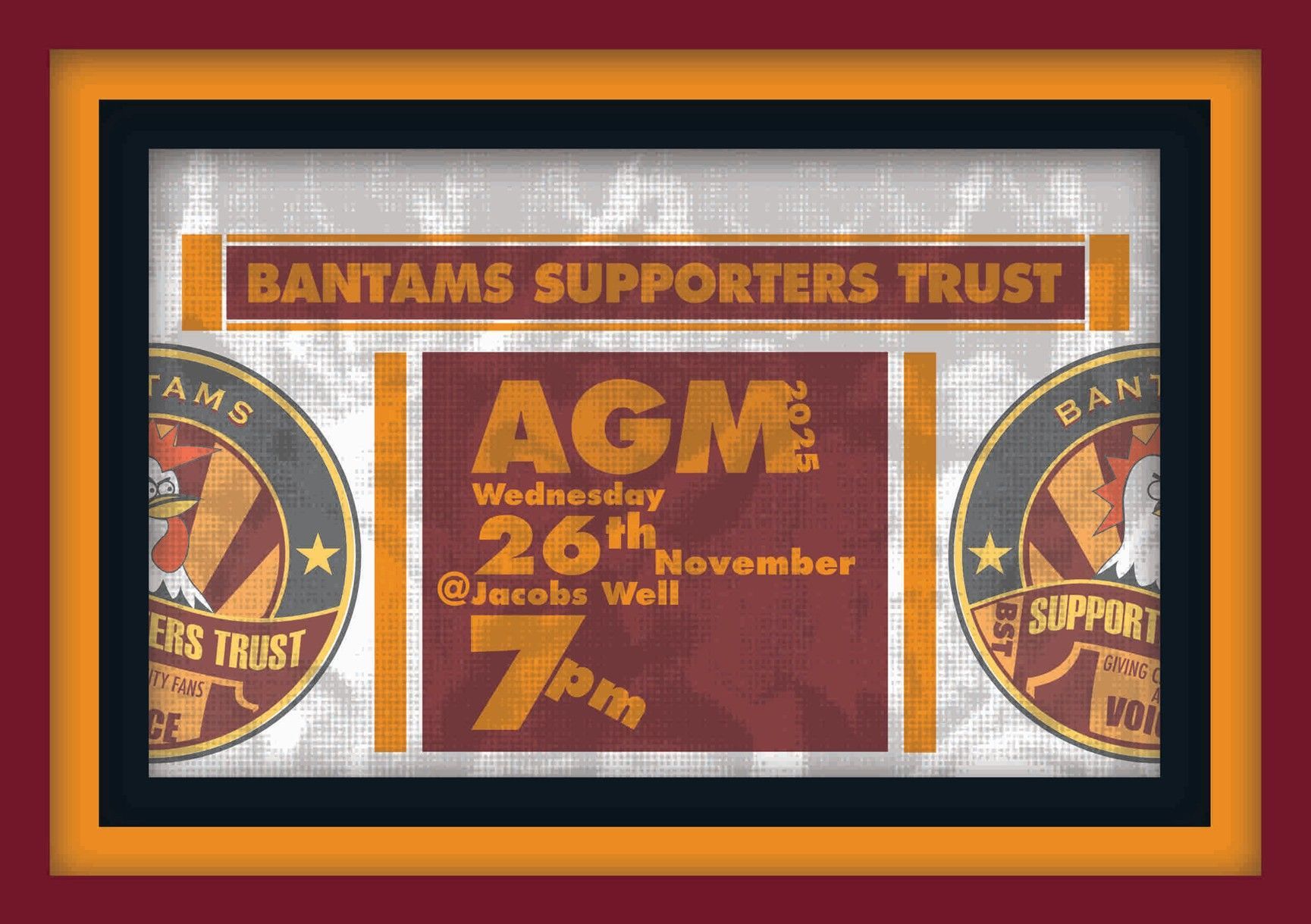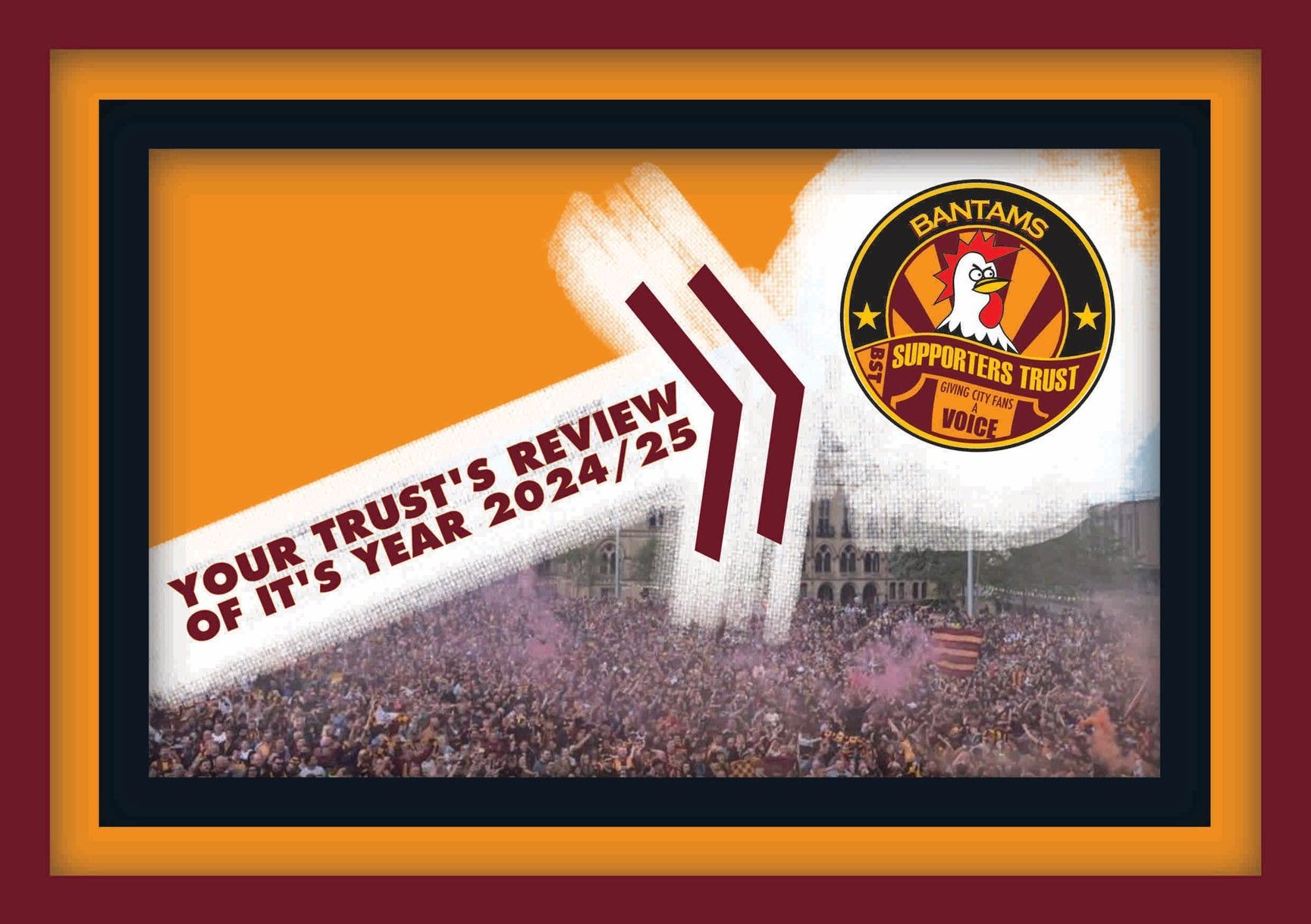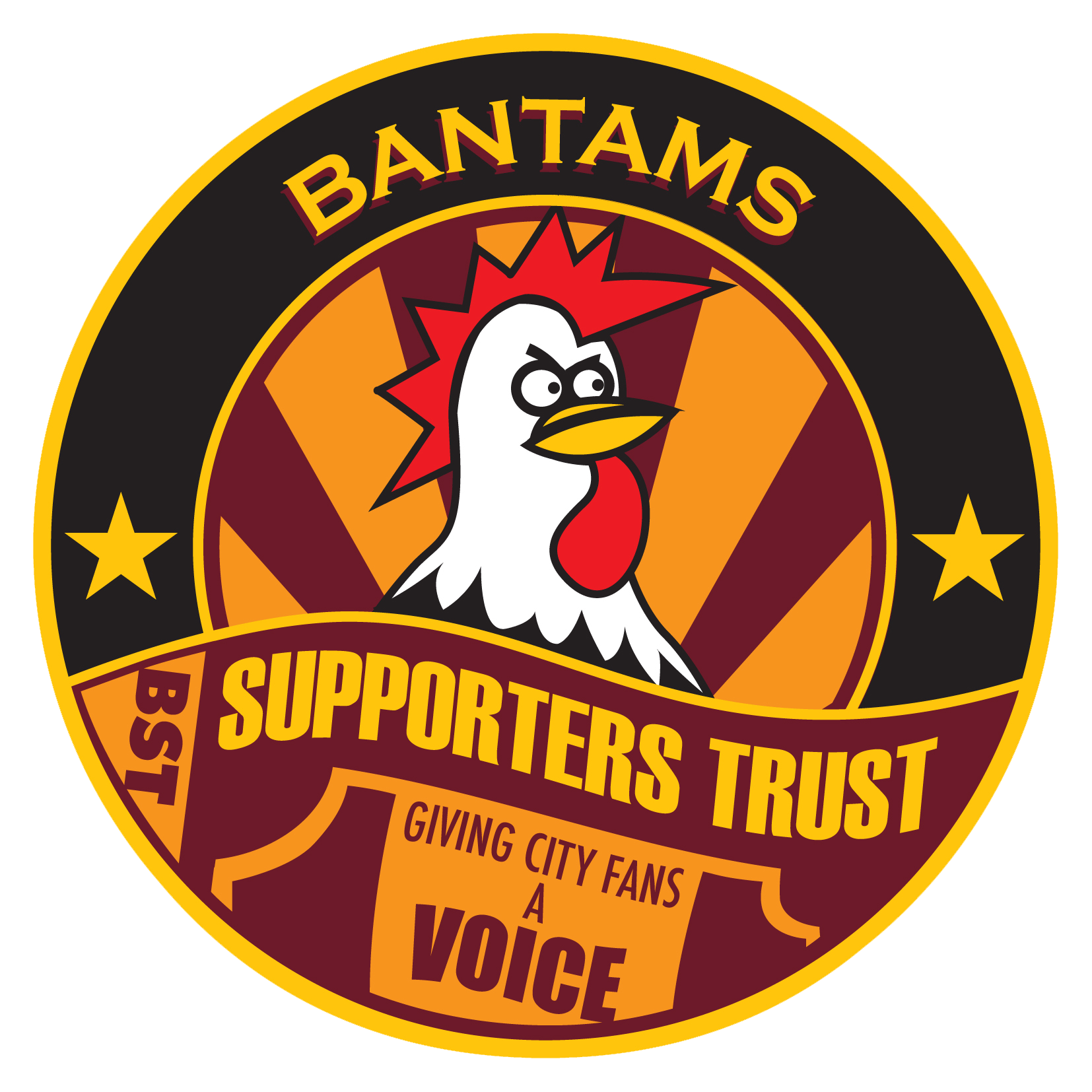A Trust Perspective on the direction of our football club
With the season more of less over, for fans, it is difficult to feel any sense of achievement for our Club. It has been one of the most difficult season campaigns to watch as the team have failed to find its’ form.
It has been said by many fans, as we have discussed in the pubs, and in football grounds, that fans have been losing faith and turning away from attending, after years of mediocrity. But it depends on who you speak to. Most with longer memories are familiar with it but at the younger end, many won’t stand for it.
But from whichever generation you speak to, the majority feels it has been bad, particularly at home. The inconsistency of a team that has never seemed to get going has be been peppered with some bursts of enterprise (?) and good effort. Reaching the semi final of the EFL Trophy, and then playing and losing what has been considered the best home game of the season at that semi final against Wycombe has been a key moment for those that were there, or watched it on Sky. From November through December we showed our best form, and then we won a few in February to early March before losing 4 in a row which included the 5 – 1 drubbing at home to Mansfield in March, making any hope that we could ever reach the Play Off’s extremely remote.
Each downturn as it did last season, brought on a meltdown on social media, but only this season, feelings about the state of the Club felt much worse.
Discontent and pressure for change
As we have commented on before, the bubbling discontent has been simmering for a few years now, and particularly in the last three or so those concerns with the team have brought cause for concern at the top – the ownership, control and management of the Club. But it is this season more than any one since the departure of Edin Rahich in 2018, where we have seen a demand for the owner Stefan Rupp to leave.
It’s clear that the primary motive for this demand is a lack of investment in the team by the owner, to increase our prospects of success, which then concludes a lack of knowhow about bringing the talent to the Club (managers and players alike) and knitting it together, by those that run the Club on a day to day basis.
Brought to the surface
There had been concerns about Stefan Rupp’s interest and lack of engagement with supporters and investment for some time. Indeed reflecting that, we, at the Trust have been requesting that he engages with us at our structured dialogue meetings with the Club for a number of years now, and certainly at a Supporters Board level, this has been raised.
Requests for supporter engagement and more investment from other groups have come largely in the form of letters and the threat of protest in particular, which became more real after the Mansfield defeat.
Stefan Rupp’s open letter response to fans was well written, and covered all ground, in particularly, investment to compete in the transfer market and in terms of his presence at the Club and his communication with the fans, although it is not clear how he will communicate with us. He did talk about the ground and the issue around the lease, and the possibility of buying it. He also made known his commitment to his ownership and his considerations to sell and ensure the Club sale to those with the best intentions to bring greater success to the Club. He also promised to add someone to assist in the football department – this has already come in the form of the recent appointment of David Sharpe, as the club’s head of football operations.
No doubt fan pressure has brought things forward. The protest that did take place before the Tranmere game was very real, and was a reflection of how bad things had got, and made on the regional news and had nation media attention. If Stefan Rupp was sitting on this statement for a while, it's a mystery why he didn't release it sooner - it would have helped to reassure fans and defused some of the discontent.
Fan group unity is important
Among the Bradford City fanbase there a number of supporter organisations, clubs, forums, media outlets, and all have a presence on social media. All these groups represent fans in different ways and some have specific remits for this.
On the ground, as fans, we all want the same thing, a successful winning Bradford City on the pitch, with the Club engaging and communicating very well with the fanbase. Many supporters are members of several groups.
Whilst there are differences within specific groups, the Trust feels it is imperative that groups should work together on things we can all identify with. For us, whilst we all worked in different ways, to the Club we must all sound remarkably similar.
The Supporters Board is an ideal forum that fans groups can be a part of. Historically it has been made up of a mix of individual supporters and supporters groups. The Trust and travel groups for example. Some groups meet the Club separately. There is the atmosphere group and diversity groups as well, so the aims vary, and some are more limited than others.
Although we are not currently on the Supporters Board we do have a direct channel of engagement with the Club. The Independent Supporters Group, who have been the most publically vocal in its criticism of the Club’s perceived lack of ambition, are a relatively new group and sit outside of any fan engagement with the Club.
Next season if stagnation continues to play out on the pitch, it cannot be ruled that protests will continue to be organized, demanding the ousting of the owner and its representatives charged with running the Club. Therefore it is important for the Trust and other groups to work together to encourage the Club and owner to improve their communications and engagements with supporters.
In 2017, the Government Expert Working Group (EWG) on Football Supporters Ownership and Engagement reported good progress with EFL and PL Clubs implementing their recommendation which was that club leaders (owners/senior executives) from every one of the 92 professional clubs meet with a representative group of supporters (including the Supporters’ Trust) from their club at least twice a season has been agreed by the Premier League and English Football League (EFL).
Today there is somewhat a mixed picture of how well clubs engage with supporters.
Supporters Boards are called many things these days, shadow boards, advisory boards and all have varying intricacies of how clubs engage with Supporters Trusts.
Six years from the Government EWG on fan engagement we now see the Football Governance Bill, and it still recommends that a Supporters Trust should be part of a supporter representative board.
The state of the game and what the Football Governance Bill is supposed to bring
Lets be clear, football cannot manage itself. As we’ve indicated in previous statement about the Football Governance Bill, the ‘greed is good’ Premier League wealth from its national and international TV deals has widened the gulf between the top half, or the ‘big six’ of the PL and the rest. It can’t even agree how much money it should distribute to the EFL and National League.
There is deep distrust of the football authorities and what the mainstream political parties have to offer on football let alone anything else.
The ‘let’s sack everyone’ voices are not exclusive to a layer of Bradford City supporters, when frustration reaches a certain height. It is linked to a state of alienation and anxiety caused by a lack of control football supporters feel when progress is not been made on the pitch, because everything is down to money. It is tough for clubs competing within the EFL when the wealth amongst all of them is so uneven.
What we are promised in the Bill
The key feature is that all aspects of governance including aspects of club heritage, as well as fan engagement, are that they will be licensed, in the same way that stadiums have to have a license today for safety. These licenses will be overseen by an independent regulator under the Bill.
*What the Football Governance Bill and the Independent Football Regulator will do
The legislation will strengthen the governance and financial resilience of football clubs and the link between clubs and their fans. The legislation will do this by:
- Establishing a new independent regulator. The IFR will operate a licensing system, where all clubs in scope will need a licence to operate. It is intended that all clubs in the top five tiers of men’s English football will be in scope of the regulatory regime.
- Establishing strengthened Owners’ and Directors’ Tests to make sure club custodians are suitable.
- Enabling the use of targeted financial regulation to improve the financial resilience of individual clubs and the system more broadly.
- Setting a minimum standard of fan engagement and requiring clubs to comply with club heritage protections.
- Requiring clubs to seek IFR pre-approval for any sale of, or relocation from, their home ground.
- Preventing English clubs from joining prohibited competitions that do not have the support of the fans or that threaten the heritage or sustainability of English football.
- Giving the IFR targeted backstop powers to intervene in financial distributions if necessary and subject to certain thresholds being met, in order to ensure financial sustainability.
- Establishing a ‘Football Club Corporate Governance Code’, requiring regulated clubs to report on how they are applying the code of practice.
- Periodically prepare and publish a comprehensive ‘State of Game’ report, which will act as a market study for football and provide the IFR with a key evidence base.
*This is taken directly from the government website.
Cross party agreement
All three main establishment political parties support the Bill. What matters however is interpretation, and therefore its effectiveness. This will become more real once the Bill has finally gone through the parliamentary process of making it statute and of course, after we know which party is in power after the general election.
It is likely clubs will continue to slide into financial trouble, and continue to get points deducted or cease to exist after this legislation is passed, so it will be likely that there will be fan pressure to make these reforms work effectively.
The stadium
As mentioned earlier, Rupp did acknowledge the ground situation and the possibility of buying it, and as we have mentioned in a previous article we produced in March, we did apply for the stadium to be an Asset of Community Value.
“Assets of Community Value are designated under the 2011 Localism Act in recognition of provisions, services or buildings that occupy a key place in the hearts and minds of local communities. The Act was designed to provide an element of devolution of power to communities and community organisations.
As far as the Trust is concerned, the main advantage of listing Valley Parade as an ACV is that it would:
- Grant Valley Parade the public recognition it deserves
- Give City fans an undeniable voice in the future of the stadium
- Prevent the owner from selling the asset from under our noses, without the knowledge of the fan base.”
The Trust as we are a community mutual benefit society, we are the only supporter organisation that can apply to the local authority for the stadium to be an ACV, as such, we can raise some serious amounts of money, and our rules allow us the potential to democratically own a football club or a stadium, or both.
We explained to the Club of our intention to apply for the ACV in Novembers meeting with them.
Uncertainty
It’s clear that most fans will see Stefan Rupp’s open letter as believable if he invests enough for us to compete with other ‘better resourced clubs’ in terms of attracting the right blend of players in time for next season’s campaign. If Graham Alexander’s team starts well when the new season kicks off and there is a consistency, the pressure from the fans will be a more positive one. There will be no room for a slow start, and if the pitch starts to deteriorate due to poor weather conditions, that would prolong concerns in the operation of the business of running the Club and its engagement with supporters.

